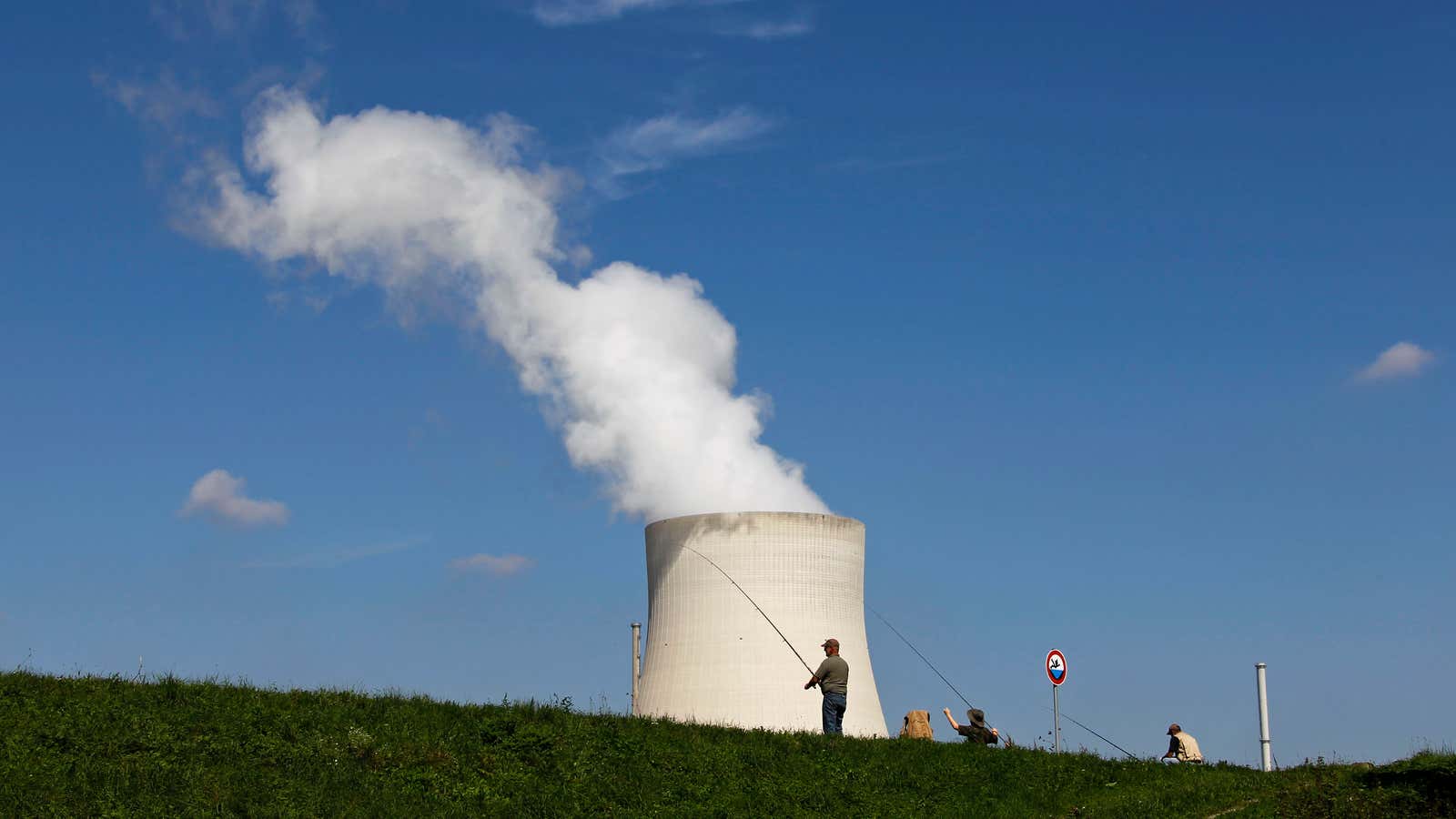On Aug. 10, 2015, Poland was forced to restrict power supply to 1,600 of its biggest companies. The problem wasn’t a shortage of coal or natural gas—the country’s main sources of electricity— but rather, a shortage of water.
Water is used in thermal power plants—including coal, natural gas, oil, and nuclear—to cool the steam that drives turbines. (The water used to create steam is recycled.) These power plants use a lot of water for cooling—more than half of all water withdrawn from natural sources in Europe, according to Paul Behrens, assistant professor at Leiden University.
European plants previously had to restrict energy supply during summer droughts in 2003 and 2006. And according to a new study by Behrens, published in Nature Energy, power curtailments are set to increase in Europe as global warming alters natural precipitation patterns.
Behrens and his colleagues considered a range of factors to come to their conclusion. First, they looked at how precipitation patterns will change across the EU because of climate change. Next, they included a range of European plans to retire aging power plants (mostly coal and nuclear) and replace them with natural gas and renewable energy, such as wind and solar, which require no water to operate. But despite projections for decreased water demand, Behrens and his colleagues found that water stress will still lead to power curtailments in the Mediterranean region and in France, where nuclear power dominates, Germany, and Poland.
“As it is, climate change makes many fossil-fuel power plants stranded assets,” said Behrens. “Water stress only adds to the problems.”
In 2016, a European Commission document warned that member countries would have to prepare for “profound lifestyle changes” if countries are to stick to the commitments they made under the Paris climate agreement. It looks like those lifestyle changes may also include the occasional blackout.
